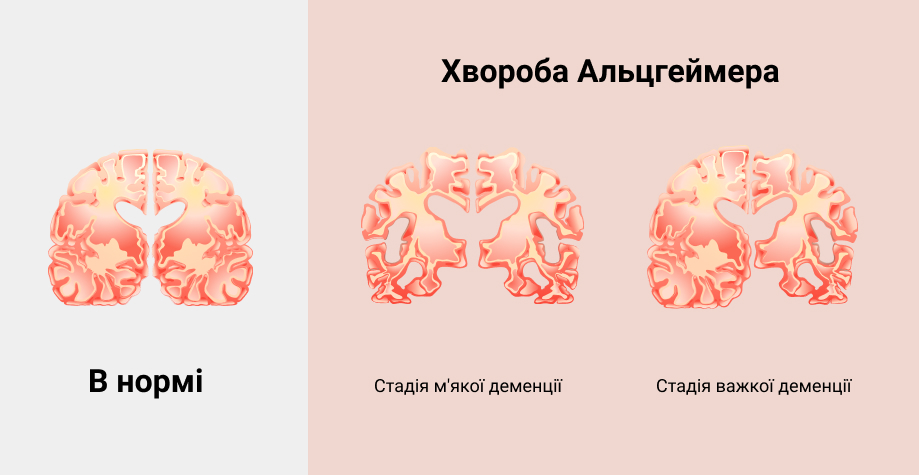
Cognitive disorders such as Alzheimer's disease and dementia raise many questions, as both terms are often used synonymously. In fact, these are different concepts, although they are closely related, writes the Industrial Zaporizhzhia website. In this article, we will look at how these two conditions differ, what their causes are, and how they are diagnosed.
What is dementia?
Dementia is a general term that describes a condition characterized by a decline in cognitive function. It is not a single disease, but a collection of symptoms that affect memory, thinking, orientation, ability to learn, and the performance of everyday tasks. The main feature of dementia is that these impairments are so severe that they interfere with normal life.
The causes of dementia can be diverse:
- Alzheimer's disease (60-70% of all dementia cases).
- Vascular dementia, which is caused by impaired blood flow to the brain. Lewy body dementia, which is associated with abnormal protein structures in the brain. Parkinson's disease or other neurodegenerative conditions. Temporary factors, such as vitamin deficiencies, hormonal imbalances, or infections. Dementia is therefore an umbrella term that covers a variety of conditions, with Alzheimer's disease being the most common.
Alzheimer's disease: a specific cause of dementia
Alzheimer's disease is a progressive neurodegenerative disease that is the most common cause of dementia. Its development is associated with the death of nerve cells in the brain, which causes a serious deterioration in cognitive abilities.
The main causes of Alzheimer's disease:
- The accumulation of beta-amyloid plaques in the brain, which disrupt the communication between nerve cells.
- Formation of tau proteins, which cause the destruction of nerve fibers.
- Genetic predisposition.
- Age-related changes and environmental factors.
Symptoms of Alzheimer's disease usually begin with impaired short-term memory. As the disease progresses, a person faces difficulties in orientation, speech, logical thinking, and in the later stages completely loses the ability to live independently.
Key Differences Between Dementia and Alzheimer's Disease
- Broadness:
Dementia is a general term for cognitive impairment, while Alzheimer's disease is a specific diagnosis and the most common cause of dementia. - Causes:
Dementia can be caused by a variety of diseases and conditions, while Alzheimer's disease is the result of neurodegenerative changes in the brain. - Symptoms:
Alzheimer's disease always includes symptoms of dementia, but dementia can be caused by other factors, such as vascular disorders or other neurodegenerative processes.
How is the diagnosis made?
A thorough medical examination is necessary to determine the cause of dementia. Doctors use the following methods:
- Neuropsychological tests to assess memory, attention, and thinking.
- Brain imaging (MRI or CT) to help detect structural changes.
- Blood and cerebrospinal fluid tests to rule out other possible causes of the disorder.
- Genetic testing to identify a predisposition to Alzheimer's disease.
How to recognize early symptoms?
Early detection of disorders is important for effective treatment and care. The main early signs of dementia are:
- Problems with short-term memory (for example, forgetting conversations or events).
- Disorientation in space or time.
- Difficulty in completing familiar tasks.
- Changes in mood, personality, or social behavior.
Summary
Dementia and Alzheimer's disease are serious conditions that require attention from both the medical and social sectors. Understanding the difference between the two can help you better navigate symptoms, diagnosis, and treatment. If you or someone you love is experiencing signs of cognitive impairment, it's important to seek medical attention for early diagnosis and support.

